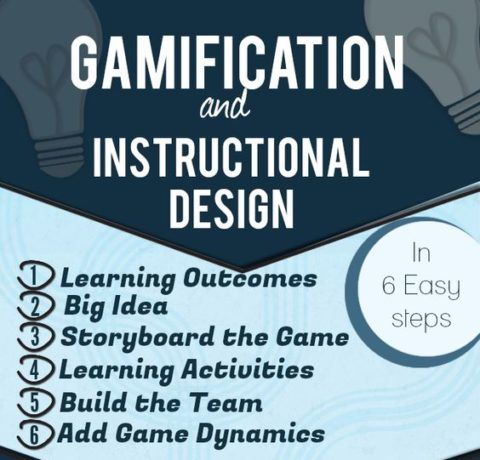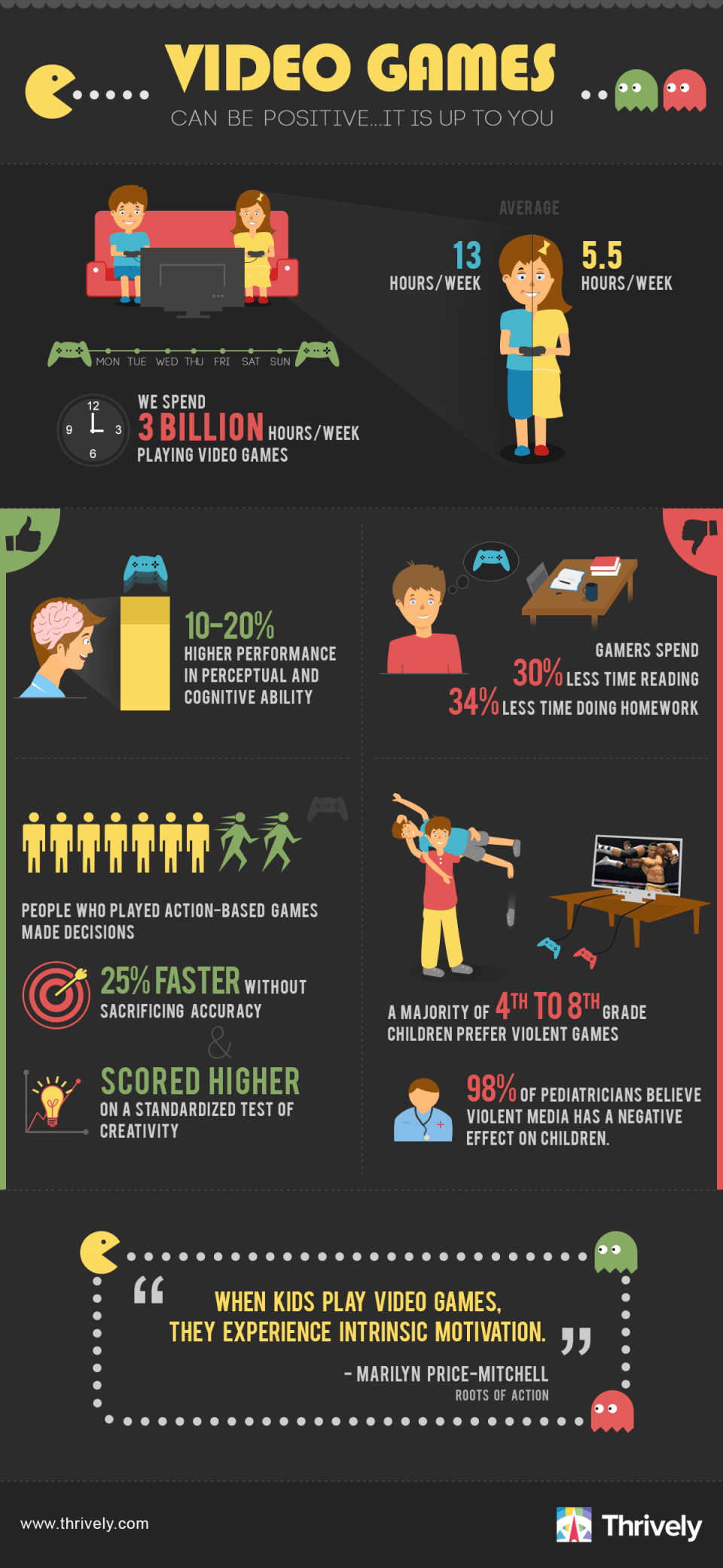Video Games Can Be Positive For Kids - It's Up to You
There have been studies, headlines and speculation about the effects of video games on children for years. It’s time for us to sift through the hearsay and scare tactics and focus on what’s important: what matters is not if your child plays video games, but how your child plays video games. So, what exactly determines when video games are good and when they are bad, you ask?
Video games exercise your children’s strengths and allow them to learn in a fun, non-threatening environment. They can learn vital skills like decision making, pattern recognition, and creative thinking while playing games like Angry Birds on your tablet. Kids feel rewarded for exercising these strengths when they move on to the next level, which motivates them to apply and develop these skills further (both in the subsequent rounds of Angry Birds and in real life). Daphne Bavelier gives a TED Talk on the effect of gaming on the brain, and she stresses that different games have different effects on the brain. Puzzles improve strategic thinking, problem solving, analysis and memory in gamers. Action games teach kids quick-thinking, accuracy, memory, and many other skills. It was even discovered that surgeons who play video games are faster and more accurate in surgeries. If you can trust your doctor with them, why not let your kids take a crack at it? In fact, gamers are four times quicker at making decisions and executing them!
Some action games (like shooter games) have a controversial reputation; however, they do have some positive effects. Shooter games can improve kids’ attention, and give children an outlet for stress in the same way that violent sports (like football) do. But not surprisingly, most pediatricians believe that violent media have negative effects on kids. What matters here is exposure: when kids are repeatedly exposed to violent video games for long periods of time, their aggression might be affected in real life. This is supported by many bodies of research, including this recent (and frightening) one.
More generally, when kids spend more time playing video games, they have less time to participate in other activities. Pretty obvious, huh? But still a very important point. Kids who play video games spend less time reading and doing homework. It is important to manage the time that kids spend playing video games. Everything in moderation, right? Balancing video games with school work, extracurricular activities, and social activities is a great opportunity to teach children time management.
So, how can you use video games for good?
Here are a few ways you can do it:
- Choose video games that exercise your child’s strengths and improve their weaknesses. As mentioned before, some video games may have negative effects on your child, so make sure you are exercising positive strengths and weaknesses.
- Choose the games that fit your child best using the ratings displayed on the games. No one knows better than you which games fit your child’s personality and strengths.
- Balance the time that your children spend playing video games with your child’s other activities. You can allow them to create their own limits and build the schedule that works best for them (with your guidance, of course). This will develop their time management and decision-making skills.
- If your child is a video game master, he/she might want to make a career of it! Youth Digital offers online gaming design and programming for kids aged 8 - 14.







You can adjust your cookie preferences here.